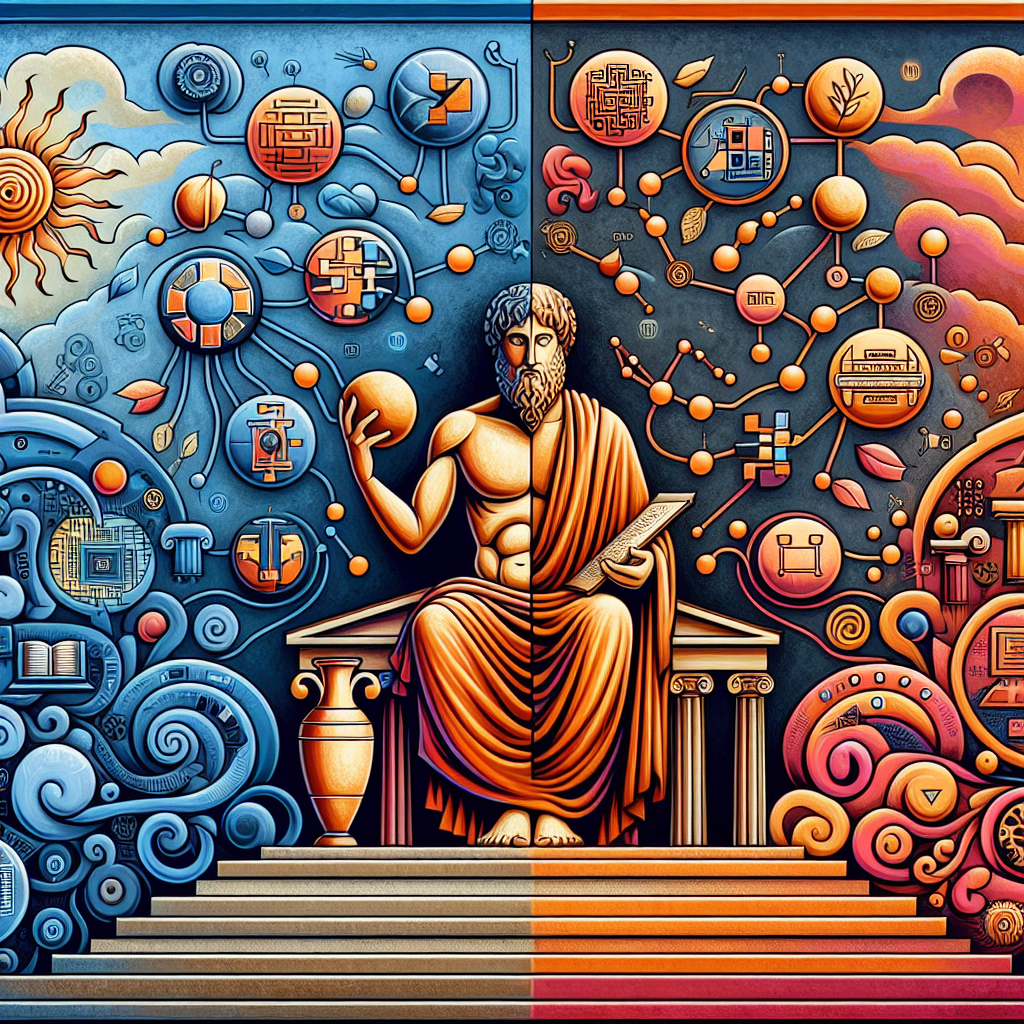Top Stories
How Aristotle’s Philosophy Shapes Modern Computing Technologies

Aristotle, the ancient Greek philosopher, significantly influenced various fields, including modern computing. His foundational ideas in logic, knowledge, and ethics resonate in today’s technological advancements. This exploration reveals how Aristotle’s philosophies underpin the principles of computing, affecting everything from programming to ethical considerations in technology.
The Roots of Logic in Computing
Aristotle’s contributions to formal logic are perhaps his most enduring legacy. His work in syllogistic reasoning, particularly detailed in his text, Prior Analytics, established a structured approach to logical deduction. This method lays the groundwork for computational logic, which is vital to programming languages and algorithms. Contemporary computers utilize binary logic systems, derived from Aristotle’s principles, enabling complex operations based on fundamental truth values.
Moreover, Aristotle’s emphasis on categorization is evident in computer science. His work, Categories, introduced a framework for organizing information hierarchically. This principle is reflected in databases and object-oriented programming, where entities are classified into objects and categories. Such classification promotes effective organization and retrieval of information, crucial in today’s data-driven environment.
Knowledge, Ethics, and the Digital Age
Aristotle’s exploration of knowledge, particularly his distinctions between different types—episteme (scientific knowledge), techne (practical knowledge), and phronesis (practical wisdom)—has significant implications for computing. For instance, the field of artificial intelligence (AI) aligns closely with phronesis, as it seeks to replicate human-like understanding and decision-making. This ambition embodies Aristotle’s concept of practical wisdom, highlighting the relevance of his philosophies in modern technology.
As technology integrates more deeply into daily life, ethical considerations become increasingly important. Aristotle’s virtue ethics, which focus on character development and the pursuit of the “good life,” provide insights into current discussions around technology ethics. His concept of the Golden Mean—the idea that virtue lies between extremes—can guide the development and use of AI. Developers are encouraged to enhance user welfare while respecting privacy and avoiding bias, reflecting Aristotle’s balanced approach to moral philosophy.
Aristotle’s exploration of causality also finds resonance in theoretical computation. His analysis of causes—material, formal, efficient, and final—can be mapped to modern computation theories. For example, the material cause aligns with hardware, while the formal cause corresponds to algorithms. This multi-causal perspective enriches our understanding of computational processes.
In the realm of concurrent computing, Aristotle’s ideas of potentiality and actuality illuminate concepts like state and transitions. These ideas are particularly relevant in systems that require careful management of resources and processes, emphasizing the need for clarity and efficiency in computational design.
The legacy of Aristotle extends beyond historical significance; it forms a critical foundation for many aspects of modern computing. His philosophical principles continue to inform the theories and practices that shape the digital landscape. As we look ahead to an era defined by advancements in artificial intelligence, machine learning, and data ethics, engaging with Aristotle’s philosophical roots becomes essential.
By grounding our technological advancements in these time-honored ideas, we can navigate the complex interplay between technology and humanity. This approach not only honors Aristotle’s contributions but also fosters a future where technology serves to enhance society in meaningful ways. Emphasizing wisdom and ethical considerations, as championed by Aristotle, ensures that our progress aligns with principles that have stood the test of time.
-

 Lifestyle3 months ago
Lifestyle3 months agoLibraries Challenge Rising E-Book Costs Amid Growing Demand
-

 Sports3 months ago
Sports3 months agoTyreek Hill Responds to Tua Tagovailoa’s Comments on Team Dynamics
-

 Sports3 months ago
Sports3 months agoLiverpool Secures Agreement to Sign Young Striker Will Wright
-

 Lifestyle3 months ago
Lifestyle3 months agoSave Your Split Tomatoes: Expert Tips for Gardeners
-

 Lifestyle3 months ago
Lifestyle3 months agoPrincess Beatrice’s Daughter Athena Joins Siblings at London Parade
-

 World3 months ago
World3 months agoWinter Storms Lash New South Wales with Snow, Flood Risks
-

 Science3 months ago
Science3 months agoTrump Administration Moves to Repeal Key Climate Regulation
-

 Science2 months ago
Science2 months agoSan Francisco Hosts Unique Contest to Identify “Performative Males”
-

 Business3 months ago
Business3 months agoSoFi Technologies Shares Slip 2% Following Insider Stock Sale
-

 Science3 months ago
Science3 months agoNew Tool Reveals Link Between Horse Coat Condition and Parasites
-

 Sports3 months ago
Sports3 months agoElon Musk Sculpture Travels From Utah to Yosemite National Park
-

 Science3 months ago
Science3 months agoNew Study Confirms Humans Transported Stonehenge Bluestones









